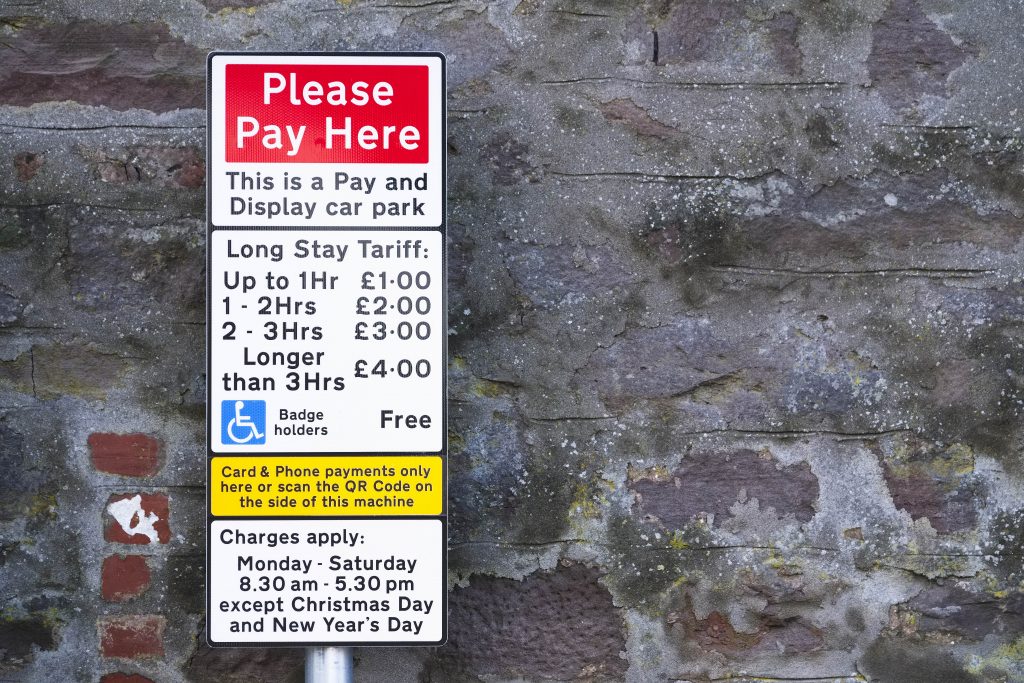A guide to getting a blue badge if you have a hidden disability
The Blue Badge scheme is designed to allow parking concessions for those with disabilities. For almost 20 years, the program catered for those with visible disabilities and mobility issues. However, this changed in August 2019, and now covers persons with hidden disabilities for the first time.
As of now, people with conditions like anxiety, dementia or brain injuries are eligible to apply for a Blue Badge, which can help them to access services, go shopping, socialise or help make travelling to and from work a little bit easier.
Welcome changes
The 2019 reappraisal of the Blue Badge scheme marked the biggest shake-up of the system since it was introduced in 2000. It allows holders to park for free in many pay-and-display bays. Badge holders are also eligible to park for up to three hours on most yellow lines. In London, badge holders are also exempt from the congestion charge.
The Department for Transport extended the criteria last year to include people who struggle to walk without risking serious harm or encountering considerable psychological distress. This can include persons who have difficulty walking long distances, as well as those with Parkinson’s, dementia, autism and other hidden disabilities.
How do I apply for a Blue Badge?
The Blue Badge scheme is overseen by local councils, and anybody who wishes to apply should contact their constituency council offices to find out more about the scheme or access an application form. Alternatively, it’s also possible to apply for a Blue Badge (or renew an existing one) via the UK government website.
The assessment process begins once the local authority has received evidence supporting eligibility. This can take 12 weeks or more.

How much does a Blue Badge cost?
Applications for a Blue Badge currently cost £10 in England. In Scotland, the scheme costs £20. It is currently free in Wales.
Blue Badge eligibility: what you need to know
According to the Department for Transport, a person automatically qualifies for a blue badge if they are over the age of two, and meet one or more of the following criteria:
- The person receives the mobility component of Disability Living Allowance at the higher rate
- The person receives PIP (Personal Independence Payment) and is unable to walk more than 50 metres unassisted
- The person receives the mobility component of PIP because they are unable to make a journey on the basis that it would cause them significant or overwhelming psychological issues
- The person is registered blind
- The person receives a mobility supplement as part of a War Pension
- The person has received a lump sum via the armed forces’ compensation scheme and has been certified by a GP or other healthcare professional as having a substantial or permanent disability
What if I don’t meet any of these criteria?
Persons who do not fall into any of the above categories are also eligible to apply for a Blue Badge, provided they meet one or more of the following:
- They cannot walk at all or have significant issues when it comes to walking
- They have a severe disability in the arms which does not prevent them from driving, but prevents them from operating pay-and-display parking meters and machines
- They have a child under the age of three who has a medical condition which means they need to have easy access to a vehicle (for example, if they are accompanied by medical equipment on a regular basis)

Recent changes to the eligibility criteria mean that those with hidden disabilities can now apply for a permit. The scheme now covers the following:
- Persons who struggle to plan/follow a journey
- Persons who are a significant risk to themselves or others in traffic or car parks
- Persons who lack awareness of the impact they can have on others
- Persons who often have overwhelming and intense responses to situations, which can cause them to temporary lose control of their behaviour
- Persons who are anxious or fearful of public spaces

